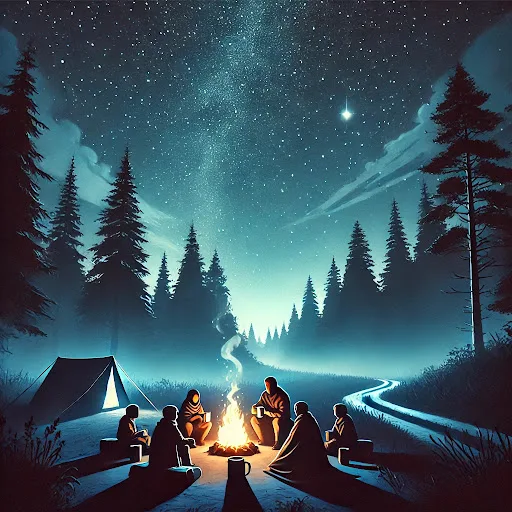Walking is more than movement — it is a return, a quiet homecoming. Before words, before thought, there was this: the body in motion, footsteps pressing into the earth, the world unfolding with each step. To walk in nature is to nourish something deep within us, a hunger we often do not name, but feel — the hunger to belong, to breathe, to be whole again.
Perhaps we seek solitude — not the heavy solitude of locked rooms and stagnant air, but one that is alive, that breathes with the trees and hums with the wind. In nature, we are alone yet never lonely. The sky stretches vast above us, untroubled by our worries. The rustling leaves whisper that we need not rush. Here, in this quiet, there is a rare gift: the freedom to simply be.
Or is it movement we long for? The body, so often contained — trapped in chairs, stiffened by routine, shaped to fit a world of straight lines — rediscovers its grace in the simple act of walking. The spine unfurls, the breath deepens, the arms swing loose, and suddenly, we remember: we were made for this. To move, to stretch, to inhabit our own rhythm, as natural as the wind shifting through branches.
And then there is the rhythm itself — the steady pulse of step after step, a heartbeat in harmony with the living world. This is where thoughts loosen, where the mind exhales, where new ideas arrive as lightly as birds settling on a branch. Here, clarity is not forced; it emerges, gently, as if it had been waiting for us all along.
But perhaps, above all, we walk to remember that we are held. Not by walls or hands, but by something vaster, something eternal. A tree’s silent endurance, a river’s ceaseless journey — these things whisper of time beyond our own, of a rhythm older than our worries, a belonging that does not waver. We are small, yes, but we are part of something immense and kind.
But belonging is not only found in movement — it is also in the stillness of night, in the quiet glow of a campfire. As day folds into night, as the path leads not home but to the quiet glow of a campfire, another kind of belonging emerges. We sit wrapped in blankets, hands cupped around steaming mugs, the scent of woodsmoke curling into the crisp night air. Above us, the sky stretches open, vast and velvet, spattered with stars.
This is where time slows. Where laughter comes softer, where voices lower in reverence, as if not to disturb the sacred hush of the cosmos. The fire flickers golden against familiar faces, and in this gentle glow, we are neither lost nor searching. The earth is firm beneath us, the night tender around us, the universe quietly watching over us.
And so we walk, and we rest. We move, and we pause. Not always knowing why, only that with each step, with each breath beneath the stars, we feel the quiet answer rising from the earth: You are here — and that is enough.


Comments
Post a Comment